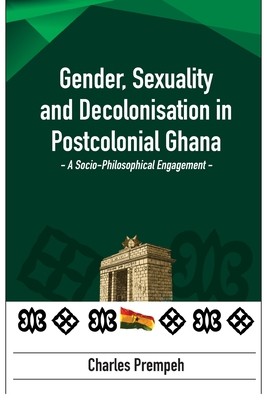
- We will send in 10–14 business days.
- Author: Charles Prempeh
- Publisher: Langaa RPCID
- ISBN-10: 995655295X
- ISBN-13: 9789956552955
- Format: 15.6 x 23.4 x 2.3 cm, minkšti viršeliai
- Language: English
- SAVE -10% with code: EXTRA
Gender, Sexuality and Decolonisation in Postcolonial Ghana (e-book) (used book) | bookbook.eu
Reviews
Description
Since the turn of the millennium, in Ghana and in other African countries, there has been a vociferous debate over the history and present condition of the family. The debate has largely fragmented the Ghanaian constituency into two nearly intransigent camps: those who think the indigenous family system should experience cultural osmosis to accommodate the seismic Western cultural revolutions and the overwhelming religious constituency who advocate the retention of conservative family system. This book is a contribution to the debate. Written by an African Studies academic, it seeks to use the resources of both the social sciences and religion to assess the merits of the various parties to the debate. The author believes
in the legitimacy of the traditional family system as conditio sine qua non for preserving human civilization. Nevertheless, the goal of this book is not to further polarize the Ghanaian front, but build bridges, by inviting the various parties to the debate to walk the complex pathways of exercising compassion without compromising the values that support human flourishing.
EXTRA 10 % discount with code: EXTRA
The promotion ends in 22d.03:47:09
The discount code is valid when purchasing from 10 €. Discounts do not stack.
- Author: Charles Prempeh
- Publisher: Langaa RPCID
- ISBN-10: 995655295X
- ISBN-13: 9789956552955
- Format: 15.6 x 23.4 x 2.3 cm, minkšti viršeliai
- Language: English English
Since the turn of the millennium, in Ghana and in other African countries, there has been a vociferous debate over the history and present condition of the family. The debate has largely fragmented the Ghanaian constituency into two nearly intransigent camps: those who think the indigenous family system should experience cultural osmosis to accommodate the seismic Western cultural revolutions and the overwhelming religious constituency who advocate the retention of conservative family system. This book is a contribution to the debate. Written by an African Studies academic, it seeks to use the resources of both the social sciences and religion to assess the merits of the various parties to the debate. The author believes
in the legitimacy of the traditional family system as conditio sine qua non for preserving human civilization. Nevertheless, the goal of this book is not to further polarize the Ghanaian front, but build bridges, by inviting the various parties to the debate to walk the complex pathways of exercising compassion without compromising the values that support human flourishing.


Reviews